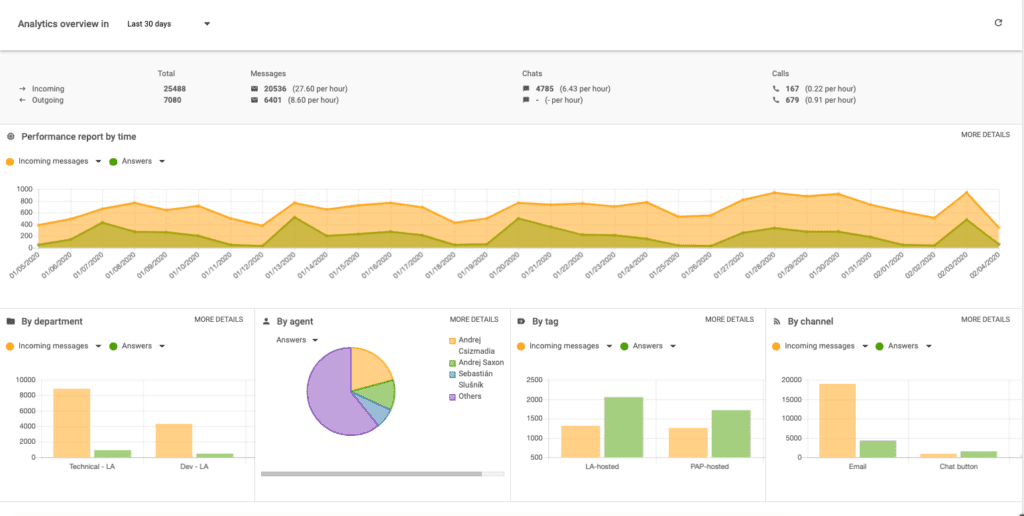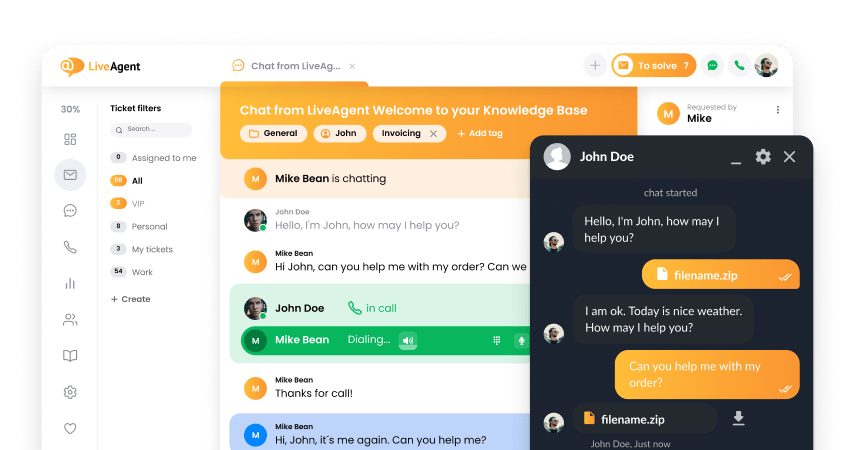- All checklists
- HR
- Starting a new job checklist
Starting a new job checklist
A comprehensive checklist to help individuals prepare for their first day at a new job, covering important tasks such as researching the company, dressing appropriately, getting to know colleagues, and setting goals for career growth. Includes tips on managing time, reducing stress, and establishing clear work-life boundaries.

- Obtain important company information
- Research the commute
- Wear the right clothes
- Pack your bag the night before
- Set an alarm
- Calm your nerves
- Get up early
- Eat a proper breakfast
- Arrive early
- Introduce yourself to everyone
- Get to know your team
- Try to arrange a meeting with your hiring manager
- Learn about your position
- Ask about applicable rules and regulations
- Find out what your career path is
- Set goals
- Take care of your insurance details
- Conduct a three-month review
Have you just started a new job? Congratulations! You are on the right path to success.
Now is the time to ensure that you have all of your ducks in a row so that success follows you everywhere.
Check out our checklist for starting a new job from day one.
The importance of starting a new job checklist
It may feel like you’re doing everything by feel at first, but soon you’ll realize how important details are. Start your new job on the right foot and avoid any problems that could occur.
Just follow these simple steps, and you’ll be good to go. (This is a suggested order of events, but feel free to tailor it to fit your own needs.)
Who can benefit from starting a new job checklist?
Everyone! Starting a new job checklist may seem like it is only for people fresh out of school, but it is useful to have a checklist even if you have changed jobs.
The more specific your steps are, the easier everything will run (and the fewer chances of problems arising).
Our checklist is best suited to all:
- people looking for a job
- recent graduates starting their first job
- people who have been in the industry a long time and are moving to a new company
- new employees
Explore starting a new job checklist
Before your first day, it’s a good idea to gather important information about the company, so you feel more confident and prepared. This includes learning about their history, what their core values are, and who their major competitors are.
Why is gathering company information important?
Knowing as much as possible about the company will help you better understand their culture and fit in. It’s also a good way to show your interest.
How to obtain company information?
Before you start googling everything under the sun, take some time to think about what your most pressing questions are and which topics interest you.
Make a list of anything that comes up during research and find the answers during your first week on the job. That way, you can focus on settling in and getting to know your new employer.
Which tools can help you obtain company information?
- The company’s website is a great place to start.
- There’s usually a lot of valuable information in the “about” section, so be sure to skim over any text.
- Check out social media platforms like Twitter and LinkedIn.
Find out how long it will take you to get from your house to the office.
Why is preparation for the commute important?
The last thing you want is to be late on your first day. Plus, it’s always good to know what to expect, and plan ahead.
How to research the commute?
Be punctual, check schedules, and allow yourself extra time to reach your destination.
Make sure that any delays caused by traffic, public transportation, etc., will not affect your arrival time. If you are driving, add a few extra minutes to avoid unnecessary stress.
Which tools can help you research the commute?
- Google Maps is always a great resource for checking out the commute, and it can also help you plan your route.
- The Walk Score website is another helpful tool. It tells you how walkable an area is, which is great if you’re looking to save on gas or public transportation costs.
Check out the clothes you plan to wear on your first day.
Why is wearing the right clothes important?
It’s always a good idea to dress professionally, but you also want to be comfortable.

How to choose the right clothes?
Make sure your clothes are clean, ironed, and in good condition. Find out how people on your position dress in the company you start working for.
You might want to ask someone who already works there or do some research online if you’re not sure what to wear. There is a possibility that the company culture is more relaxed.
Which tools can help to make sure you wear the right clothes?
- Pinterest is a great resource for finding outfit ideas
- the company website might have a style guide or photos
Do you remember the days when you packed your bag the night before school? This is the same idea.
Why is packing your bag important?
It’s best to have everything you need for the first day ready to go, saving time and reducing the chance of forgetting something important.

How to handle packing your bag the night before?
Pack everything you’ll need during the day, from your lunch to any required documents.
Take a water bottle and snacks too, in case you get hungry later in the day. A notepad and pen might also come in handy.
Which tools can help you pack the night before?
- A packing list is a great way to make sure you take everything.
This is something you shouldn’t forget. Be sure to set an alarm. You do not want to be rushed or be late.
Why is setting an alarm important?
It’s always a good idea to have a reminder that tells you it’s time to wake up and/or to leave. Plus, this will help make sure that you’re not rushing around in the morning trying to get ready.
How to set an alarm for the first day?
Set your alarm for the time you need to wake up and/or leave. Double-check that you chose the right time, as it’s easy to accidentally set your alarm incorrectly. It happens to the best of us.
If you have problems getting up, it’s best to set more than one alert.
Which tools can help you set an alarm?
There are many different alarm clock apps and websites that can help:
- Alarmy.
- Sleep Cycle.
- default alarm clock on your phone.
- a traditional, analog alarm clock.
Take deep breaths, keep your cool and carry on. Remember that it’s only human to make mistakes.
Why is calming your nerves important?
Starting a new job can be stressful or even nerve-wracking. No matter how well your last job went, you might still feel nervous. That’s why it is good to explore coping methods, which work for you, beforehand.
How to calm your nerves?
Breathe deeply and slowly. Focus on the air coming in through your nose and going out through your mouth.
Another option is to take a few minutes for yourself before you set off to work. This could be anything from reading or listening to music to walking your dog.
Make sure that you have something to help calm you down if needed, e.g. a yoga video, meditation app, cup of tea or a book – whatever works for you.
In the morning, you might also want to exercise – sport is a great way to relieve stress and anxiety.
Which tools can help calm your nerves?
- Headspace.
- Calm.com has a lot of articles and resources for calming down in the morning or before bedtime.
You get a chance to start the day on a calm note when you rise early. You’ll also have time to eat a proper breakfast and get ready without rushing.
Why is it important to get up early?
It’s always a good idea to give yourself extra time for the morning routine, especially if you’re not used to waking up at this hour. Plus, it will help reduce your stress levels in case there are any unexpected delays.

How to make sure you get up early?
You won’t have to worry about getting up in the morning if you go to bed early. Wake up about one to two hours before you need to leave. This will give you enough time.
Which tools can help you get up early?
- a walk in the morning to help wake up
- a caffeinated beverage if necessary
- a balanced sleeping schedule
Getting up early might be enough to give you a boost of energy, but it won’t last all day. Make sure that you have some food ready for the morning, otherwise, you’ll feel hungry and sluggish by lunchtime.
Why is eating a proper breakfast important?
It helps give your body the energy and fuel it needs to start the day.
How to make a proper breakfast?
Eat a healthy meal in the morning, even if you’re not usually a breakfast person. This could be anything from eggs to oatmeal or toast.

If you have time, prepare your breakfast the night before so that you can just grab and go in the morning. A banana or some granola bars are also good options that don’t take much time to prepare.
Which tools can help you find out about proper breakfast?
There are a lot of great recipes for healthy breakfasts that you can make quickly without too much effort.
- Health food blogs like Balanced Bites for ideas and inspiration.
If you arrive early, you will have time to prepare before the workday begins. Furthermore, starting sooner means less pressure and stress for your first day on the job. It also gives you a buffer for any unforeseen delays that may occur on your commute.
Why is arriving early important?
It’s always a good idea to give yourself some breathing room on the first day, especially if it’s the first time meeting your coworkers or boss.
How to arrive early on your first day?
Aim to arrive at least 30 minutes before your workday starts. This should give you enough time to get situated and comfortable in your new surroundings.
If necessary, you can also use this time to review your work instructions or training materials.
Which tools can help you?
- Google Maps can help you find the best and the shortest route to your new workplace.
It’s always a good idea to make friends and connections with your coworkers, especially if you’re new. Additionally, introducing yourself can reduce stress as you will have someone to talk to.
Why is introducing yourself to everyone important?
It will be clear from your introduction that you’re a friendly, outgoing, and chatty person – an ideal coworker!
How to introduce yourself to everyone?
Introduce yourself as soon as possible. You can do it with a quick “Hello, my name is _” and then ask how everyone is doing – simple as that.
Or have a casual conversation and ask questions if you are not comfortable talking on your own yet.
Which tools can help you in the self-intro?
- icebreaker activities you can use to get comfortable
- introduce yourself via email or a phone call
The team is one of the most important aspects of a job. Therefore, it’s essential to get to know them as soon as possible so that you can work together effectively.
Why is getting to know your team important?
It’s always beneficial to have a good relationship with your coworkers, since you’ll be spending a lot of time with them.
How to handle getting to know your team?
It’s best to introduce yourself and then begin chatting casually with them. This way, you can start building a relationship and get to know one another better without too much pressure or stress.

It’s also important not to isolate yourself on your first day at work if possible. It may be tempting when it’s busy for you to stay in your office and work on tasks alone. However, try to take a break at lunch to eat with your coworkers.
Which tools can help you get to know your team?
- casual conversation about common interests
- social media
Your first day at work will be a bit overwhelming and stressful, but keep in mind that it won’t last forever.
The best thing you can do is take everything one step at a time while staying calm and positive throughout the day. If there’s something that you’re not sure about, ask a coworker or your boss for help.
It’s best to arrange a meeting with your hiring manager if possible.
Why is arranging a meeting with your hiring manager important?
A meeting with your hiring manager is a great way to build rapport with them. You can learn about company policies, procedures, and future projects so you know what to expect in the coming weeks or months.
Plus, it’s an opportunity to ask questions about your new job and get their advice on how you can be as successful as possible.
How to arrange a meeting with your hiring manager?
The first step is simply asking. It might sound scary at first, but try emailing them or chatting one-on-one during lunchtime when they’ll probably be in a more relaxed and conversational mood.
If you get the chance, ask about their favorite projects or typical tasks to show your interest and enthusiasm for learning new skills.
Which tools can help arrange a meeting with your hiring manager?
- email – keep your message short and concise
- an internal chat tool
- a video call on Skype or Zoom
Learning about your position and job title is an integral part of starting a new job. You’ll need to understand what you’re responsible for, who you report to, and how that fits into the company’s big picture.
Why is learning about your position important?
You might feel overwhelmed at first if there are too many moving parts, but if you take the time to understand everything you’ll be responsible for, you can excel in your new job.
How to handle learning about your position?
Your hiring manager should be more than happy to go over your job duties and responsibilities during your meeting. Don’t be afraid to ask follow-up questions.
Ask your colleagues too. They might have a different perspective or give you some tips on how to excel in your new role.
Keep in mind that there’s no shame in admitting that you don’t know something. Asking for help is better than trying to figure everything out on your own.
Which tools can help you learn about your position?
- meeting with your hiring manager
- Evernote or OneNote – easy to share with your colleagues
It’s not unusual for new employees to be unsure of their duties and responsibilities, especially if they have a lot of tasks on their lists. That’s why it’s essential to ask about applicable rules and regulations to know what you can or cannot do during your work.
Why is asking about applicable rules and regulations important?
This way, you’ll be able to avoid any potential problems and have a better understanding of the set boundaries.
How to ask about applicable rules and regulations?
Your manager is the best person to ask for this type of information. They should give you a broad overview of what’s expected and what rules you need to be aware of.
If you have any specific questions, don’t hesitate to reach out to your HR department. They’re the experts when it comes to workplace policies and should help you out no matter what the question is.
Which tools can help you ask about applicable rules and regulations?
- the company’s employee handbook
- asking questions
It’s never too early to start thinking about your career path. Discovering your options is one of the best ways to figure out what you want from a job.
Why is finding out what your career path is important?
It’ll be easier to stay focused and motivated if you know what you want from your current position.
How to handle finding out what your career path is?
Your manager should give you an idea of what the company’s long-term goals are and what avenues might be open to you. You can also check out the company’s website for more information.
Which tools can help you find out what your career path is?
- company intranet
- HR department
- online career assessment tools
It’s important to set goals for yourself, both short-term and long-term. That way, you’ll have something to work towards and will be able to track your progress along the way.
Why is it important to set goals?
Setting goals can help you stay focused and motivated in your current role. Also, you can track your progress and see how far you’ve come.
How to set career goals?
Your goals can be anything from learning a new skill to taking on more responsibility at work. It’s important to tailor them to your individual needs and wants.
Come up with a list on your own and then share it with your career management. Your HR department might also be able to provide some guidance on your goals and give you career development tips based on the company’s long-term goals and vision for growth.
Which tools can help you set goals?
- apps like Habitica or Strides
- task management tools like Asana
- a career coach
- an online goal-setting tool like SMART
- goal templates online
The sooner you can get your insurance taken care of, the better.
Why do you need to take care of your insurance details?
You should not only check your health insurance coverage, but also your dental and vision plans.
How to take care of your insurance details?
If you don’t have insurance, now is the time to start looking into your options. There are plenty of different policies available, and it’s a good idea to look around before making any decisions (especially as costs can vary widely from plan to plan).
Employers often have a duty to provide you with health insurance coverage.
Which tools to use to take care of your insurance details?
- an appointment with the HR department
Plan to carry out a 90-day review of your current position. This is the perfect time for you and your manager to sit down and assess what’s working well and identify areas where improvements can be made. Of course, your performance will also factor into how quickly you’ll advance in the company.

Why is conducting a three-month review important?
A three-month check-in session is a great way to make sure that you’re on the right track. It’s also usually enough time for your manager to get an idea of how well you work with specific teams, as well as your overall performance.
How to conduct a three-month review?
During your review, you might want to touch on: training, goals, projects, and how well you’re working with your team.
Which tools can help you conduct a three-month review?
- a template like the Harvard Business Review
Things to remember in a new job
- Pay attention and show interest
It is vital to pay attention and show interest in the new job from day one. Your boss, coworkers, and any other people you meet in the company will appreciate your effort.
- Have a positive attitude
A good attitude is critical in a new job. Therefore, you need to have a positive approach towards work and the people around you.
- Meet deadlines
Making yourself a reliable colleague at your new job will increase your chances of getting a raise or promotion in the future.
- Manage your time
Time management plays a vital role in any workplace, but even more so when you start working at a new company. Thus, it is necessary to set up a daily schedule, stick to it and manage your time effectively.
- Ask for help
Asking for help is one of the best ways to make an impression on your new colleagues and get them interested in helping you when needed. Therefore, from day one, ask all coworkers if they can help you with something or explain how things work in the company.
- Establish clear work-life boundaries
Having a healthy lifestyle requires respecting work-life boundaries. Keep your personal and professional lives separate so that you can focus adequately on both when needed.
Summary of the starting a new job checklist
- Obtain important company information
- Research the commute
- Wear the right clothes
- Pack your bag the night before
- Set an alarm
- Calm your nerves
- Get up early
- Eat a proper breakfast
- Arrive early
- Introduce yourself to everyone
- Get to know your team
- Try to arrange a meeting with your hiring manager
- Learn about your position
- Ask about applicable rules and regulations
- Find out what your career path is
- Make a list of goals
- Take care of your insurance details
- Conduct a three-month review
Things to remember in a new job:
- Pay attention and show interest
- Have a positive attitude
- Meet deadlines
- Manage your time
- Ask for help
- Establish clear work-life boundaries
Frequently Asked Questions
How long should you take off before starting a new job?
It’s generally recommended that you take a few days off before starting your new job, especially if you’re moving straight from another position. This will give you enough time to relax and prepare for the transition.
How should you dress when starting a new job?
It’s essential to look your best on day one, particularly if it’s the first impression you will be making. You can ask someone in human resources what the appropriate attire is or look on the company’s website.
What should you not do on the first day of a new job?
There are a few things you should avoid on the first day of your new job: Don’t arrive late; Don’t ignore your colleagues; Don’t be disruptive; Don’t forget to introduce yourself to everyone; Don’t forget to ask lots of questions; Don’t be afraid to speak up
Is it wrong to take a year off from work?
Taking a break from work can be a great way to clear your mind and gain new perspectives. However, if you feel like it’s going to negatively impact your career, then maybe reconsider. Nevertheless, such a break can give you a new outlook on life and allow you to resume work with new enthusiasm.
What are good questions to ask when starting a new job?
Some good questions to ask when starting a new job include: What are the expectations for this position? What is the company culture like? How do you handle workplace conflicts? When are deadlines typically met? Can I take time off for personal reasons? Is there a training program for this position? Who can I go to for help if I’m struggling? What are the goals of this company?
What to say to your boss and new coworkers on the first day of work?
Don’t be afraid to ask questions and introduce yourself to everyone. It’s always a good idea to make a positive first impression. But remember, if anything makes you uncomfortable, you should be honest about it.
Why are the first 90 days of a new job so important?
The first three months are essential because you need to make an impression during this time, meaning that you should be extra attentive and work hard to exceed the expectations of your boss and colleagues. In addition, it’s an excellent time to establish some work-life boundaries. For example, if your boss is pushy about working on the weekends, don’t hesitate to set some clear limits. If you can accomplish all of this in the first 90 days, then you’re on the right track to success.
You will be
in Good Hands!
Join our community of happy clients and provide excellent customer support with LiveAgent.

Our website uses cookies. By continuing we assume your permission to deploy cookies as detailed in our privacy and cookies policy.

- How to achieve your business goals with LiveAgent
- Tour of the LiveAgent so you can get an idea of how it works
- Answers to any questions you may have about LiveAgent

 Български
Български  Čeština
Čeština  Dansk
Dansk  Deutsch
Deutsch  Eesti
Eesti  Español
Español  Français
Français  Ελληνικα
Ελληνικα  Hrvatski
Hrvatski  Italiano
Italiano  Latviešu
Latviešu  Lietuviškai
Lietuviškai  Magyar
Magyar  Nederlands
Nederlands  Norsk bokmål
Norsk bokmål  Polski
Polski  Română
Română  Русский
Русский  Slovenčina
Slovenčina  Slovenščina
Slovenščina  简体中文
简体中文  Tagalog
Tagalog  Tiếng Việt
Tiếng Việt  العربية
العربية  Português
Português 

